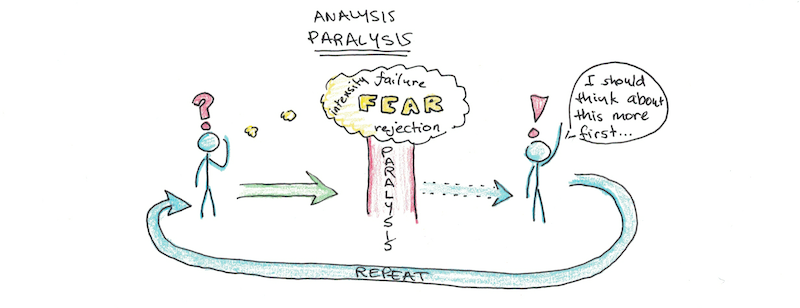In Sports, Over-Analysis Leads to Paralysis
‘Choking’ attributed to thinking too much
From sandlots to Olympic venues, athletes know what it’s like to fall apart under pressure. Years of practice vanish into an explosion of sweat, memory problems (how do I start that routine again?) and panic. It’s called “choking,” and Michigan researchers have discovered that people are most vulnerable when they begin obsessing about their actions, not when they’re distracted.
“If you are in a high-performance situation, the worst thing you could do is to try to think too closely about how you are performing,” said Sian Beilock, a researcher at Michigan State University and co-author of a study into this kind of choking.

The risks of obsession are highest if you always perform the skill automatically, she said.
Choking is extremely common, especially in sports where “athletes only have a few seconds to perform their events,” said JoAnn Dahlkoetter, a California sports psychologist, book author and former track star.
But while sports fans can reel off lists of times when professional athletes fell apart on the field, not every instance of failure means that someone has choked, said Curt L. Lox, associate professor of kinesiology and health education at Southern Illinois University Edwardsville.
“If Michael Jordan shoots a last-second shot for his team 10 times, he will miss approximately half of those. Do we say he choked in those instances? No. The game is tough, and players misfire regularly,” he said.
But those who never perform well under pressure must be treated by an expert coach or sports psychologist, Lox said.
While scientists have studied how people learn skills and become experts, there isn’t much research into why some fail in moments of pressure, said Beilock. So researchers enlisted 54 students to see if they could provoke choking and study how it occurs.
The students, all novice golfers, were divided into three groups and given lessons in putting. Each group, however, was taught in a slightly different way.

One group was distracted throughout training. The subjects had to listen to a tape of a series of words and pick out a “target” word each time they heard it. The second group was put under pressure by being videotaped and told the tapes would be viewed by golf professionals. The third group learned how to putt in a normal environment.
After the subjects practiced about 300 putts each, researchers monitored them in a high-pressure situation. They were told that each of them and a partner would win a small cash award if both improved their putting performance.
The findings of the study appear in the December issue of the Journal of Experimental Psychology: General, published by the America Psychological Association.
The groups trained in a normal setting and a videotaped setting both performed at a lower level under pressure. In other words, they choked.
The group which trained while being distracted improved and appeared to have been “inoculated” against pressure, Beilock said.
“The bottom line of our study is that [for] high-level athletics — where skills become automatic with practice and people aren’t attending to the step-by-step performance — a pressure situation may prompt you to think too much about what you’re doing. You may break down the skills, slow it down and bring yourself to a lower performance level.”
Whether they’re trying to sink a putt or striding onto a stage to deliver a speech, people facing pressure should try to distract themselves so they don’t think too much about automatic actions, Beilock said.
“Sing a song or have some kind of key word that prevents you from starting to think about the skill in ways you wouldn’t normally do,” she said.
Cox agreed that a certain amount of “reprogramming” is necessary. In some cases, sports psychologists help athletes visualize themselves performing properly and not choking in a pressure situation. “We would also use positive self-talk to keep the athlete in a positive state of mind. Thus, instead of ‘Don’t miss this shot,’ the focus might be, ‘You’ve hit this shot 1,000 times.'”
Worried about choking?

